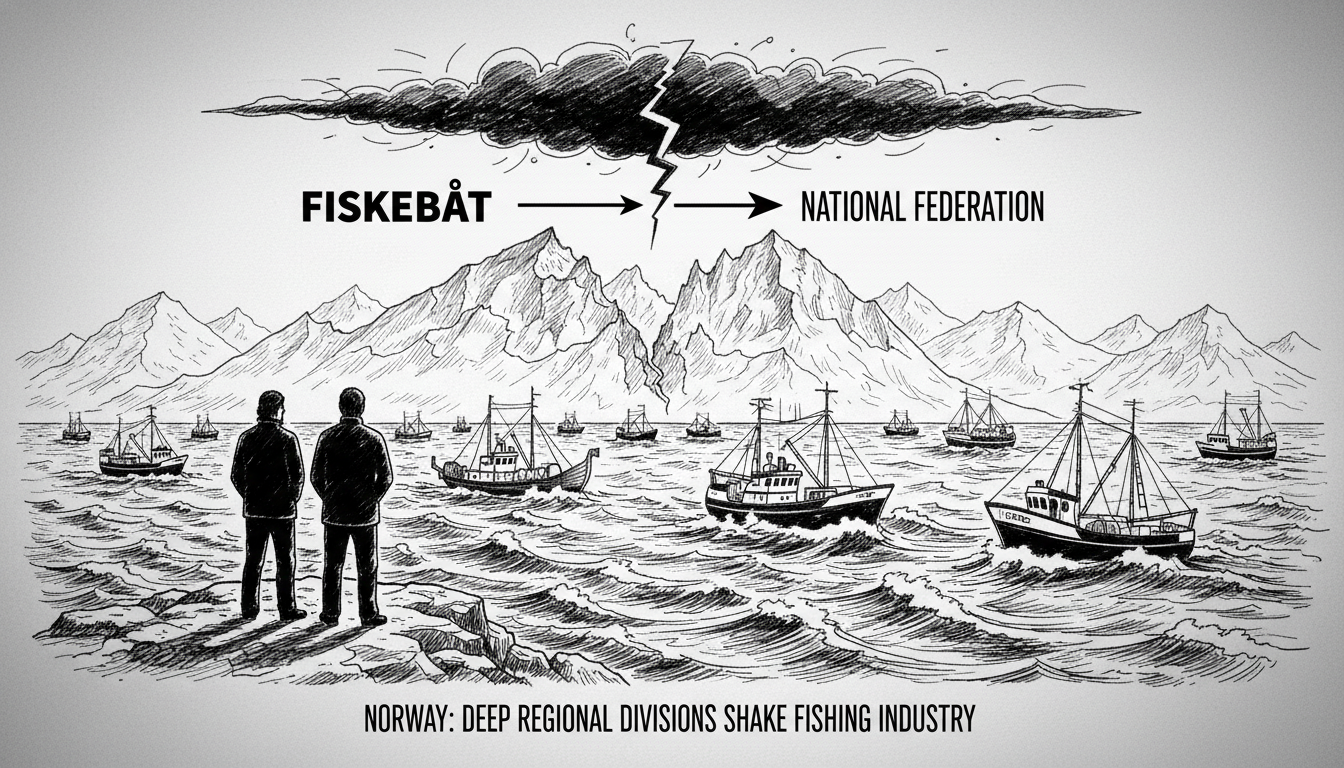The Norwegian fishing organization Fiskebåt has announced its withdrawal from Norges Fiskarlag, the country's main professional fishermen's association. This decision follows a contentious vote during the national meeting where northern fishing representatives blocked proposed constitutional changes.
Fiskebåt represents Norway's ocean-going fishing fleet and served as one of three key groups within the larger federation. The other two major factions are Nord Fiskarlag, representing northern fishing interests, and Sør-Norges Fiskarlag, covering southern regions. The split reveals deepening regional divisions within Norway's fishing industry.
Norwegian fishing politics often reflect geographic tensions between northern and southern interests. Northern fishing communities typically focus on coastal and smaller-scale operations, while southern groups like Fiskebåt represent larger offshore vessels. These different operational scales frequently lead to conflicting priorities regarding fishing quotas, regulations, and resource management.
The immediate trigger for the withdrawal occurred when Nord Fiskarlag blocked statutory amendments during the national assembly. This blocking move prevented changes that Fiskebåt members considered essential for their operations. The constitutional changes would have altered voting structures or resource allocation within the federation.
Norway's fishing industry represents one of the country's most important economic sectors, particularly in coastal communities. The split within the main professional organization could weaken the industry's collective bargaining power with government authorities. This fragmentation comes at a critical time when Norway negotiates fishing agreements with neighboring countries and the European Union.
What does this mean for international seafood markets? Norway remains one of the world's largest seafood exporters, particularly for cod, salmon, and mackerel. Internal divisions within industry representation could potentially affect quota decisions and export strategies. International buyers often prefer dealing with unified industry representatives rather than fragmented groups.
The withdrawal raises questions about future cooperation on issues like sustainability certification and environmental standards. Unified industry organizations typically manage these certifications more effectively. Separate organizations might develop competing standards, creating confusion in international markets.
This isn't the first time regional tensions have surfaced in Norwegian fishing politics. Similar divisions emerged during previous quota negotiations and policy discussions. The current split appears more serious because it involves complete organizational separation rather than internal disagreement.
What happens next? Fiskebåt will likely establish itself as an independent lobbying organization. Both groups will need to develop new strategies for engaging with government ministries and international partners. The separation could lead to increased competition for influence over Norway's fishing policies.
The timing is particularly noteworthy as climate change alters fish migration patterns. Warmer waters are pushing some species northward, potentially exacerbating existing regional tensions. Northern communities might gain access to new resources while southern operators face challenges.
Norwegian authorities will now need to engage with multiple fishing representatives rather than a unified voice. This could complicate policy-making but might also provide more diverse perspectives. The government's response to this organizational split will reveal much about its approach to industry representation.
International observers should watch how this affects Norway's position in international fishing negotiations. A divided domestic industry might struggle to present coherent positions in talks with the EU, Russia, and other fishing nations. The fragmentation could potentially weaken Norway's negotiating leverage.

